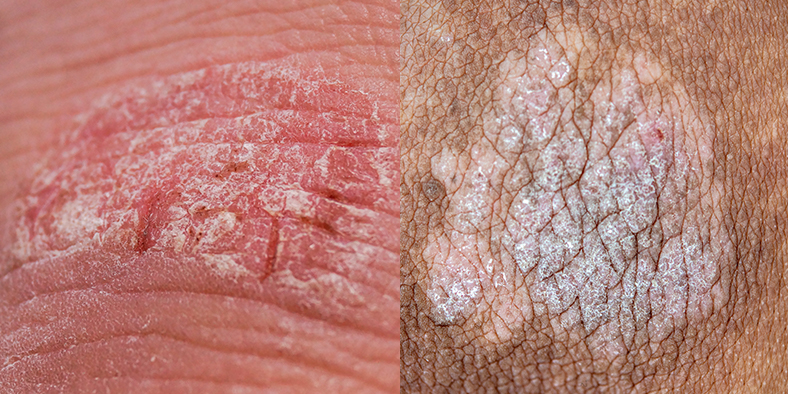Inside the Skin: Plaque Psoriasis Unveiled
From an invisible itch that turns into a red bump and finally transforms into a scaly patch of dry skin – this is the unwelcome journey taken by plaque psoriasis, a type of psoriasis which manifests itself on the skin. Psoriasis is a chronic, genetic disease that affects the immune system, causing skin cells to grow at a hyperactive rate. This rapid growth of skin cells leads to the formation of thick, silver-white scales on the skin, or “plaques”. The inflamed, red skin beneath these scales, known as the “plaque,” can cause discomfort, itchiness, and, quite often, pain.
Plaque psoriasis typically emerges on the scalp, knees, elbows, and lower back, but it can appear on any part of the body. While the visible symptoms are undoubtedly distressing, the effects of plaque psoriasis extend beyond the skin’s surface.
Who’s the Victim? Psoriasis has no Favorites!
Psoriasis is an unbiased adversary. It can occur in people of all ages, genders, and races, although it most commonly appears in adults. Contrary to popular belief, psoriasis is not contagious. It’s a genetic disease, which means if your parents or siblings have it, you might be more likely to develop it too.
Medical studies have linked plaque psoriasis to individuals with specific genetic markers. However, the exact cause remains a mystery. In some cases, a triggering event such as an infection, skin injury, or severe stress can incite the onset of the disease.
Not Just Skin Deep: The Real Impact of Plaque Psoriasis
It’s easy to dismiss psoriasis as just a skin disease, but its effects ripple through a person’s life in profound ways. It’s not just about the physical discomfort and the pain it causes. The itchy, red patches can lead to feelings of self-consciousness, embarrassment, and anxiety. People with psoriasis often suffer from social discrimination and exclusion. They may experience lower work productivity due to their condition and even develop depression.
Furthermore, psoriasis doesn’t limit itself to the skin. People with psoriasis are at a higher risk of developing other serious health conditions, such as psoriatic arthritis, heart disease, diabetes, and depression. It’s not just a skin condition—it’s a systemic one that affects the entire body.
The Bitter Truth: No Magic Bullet to Eliminate Plaque Psoriasis
Indeed, it’s a bitter pill to swallow, but there is no known cure for plaque psoriasis yet. Current treatments aim to manage symptoms and control the disease’s impact on the individual’s quality of life. Therapies include topical creams, light therapy, and systemic medications, among others. These treatments can help control the skin lesions and mitigate the disease’s physical and psychological impact.
Living with a chronic condition like plaque psoriasis can be challenging. But remember, managing the symptoms effectively can help some individuals with this condition lead semi-normal, active lives. Even without a cure, there are ways to alleviate the most of the symptoms and reduce the disease’s impact, even if it is only on a temporary basis.
Unveiling the Game-Changer: Could this be the End of Your Psoriasis Nightmare?
With the quest for a cure ongoing, scientists worldwide are making strides in developing innovative treatments for psoriasis. However, even with all of their scientific background and testing, they are still only approaching plaque psoriasis as a skin disease, when in fact, the answer to solving this condition lies much deeper.
Is Your Psoriasis Just a Symptom?
We live in an age of unprecedented healing advances. For the past 20 years we have been practicing and researching many different healing modalities. Our research has revealed that the psoriasis conditions you suffer from are only skin deep – meaning they are just a symptom of a deeper, underlying cause. Using our breakthrough psoriasis treatment, we have already delivered successful psoriasis treatment results to great success.
Are You Ready to Say Goodbye to Your Psoriasis?
See if you’re a good fit for our breakthrough psoriasis treatment by scheduling a free consultation. Click the button below to get started.

